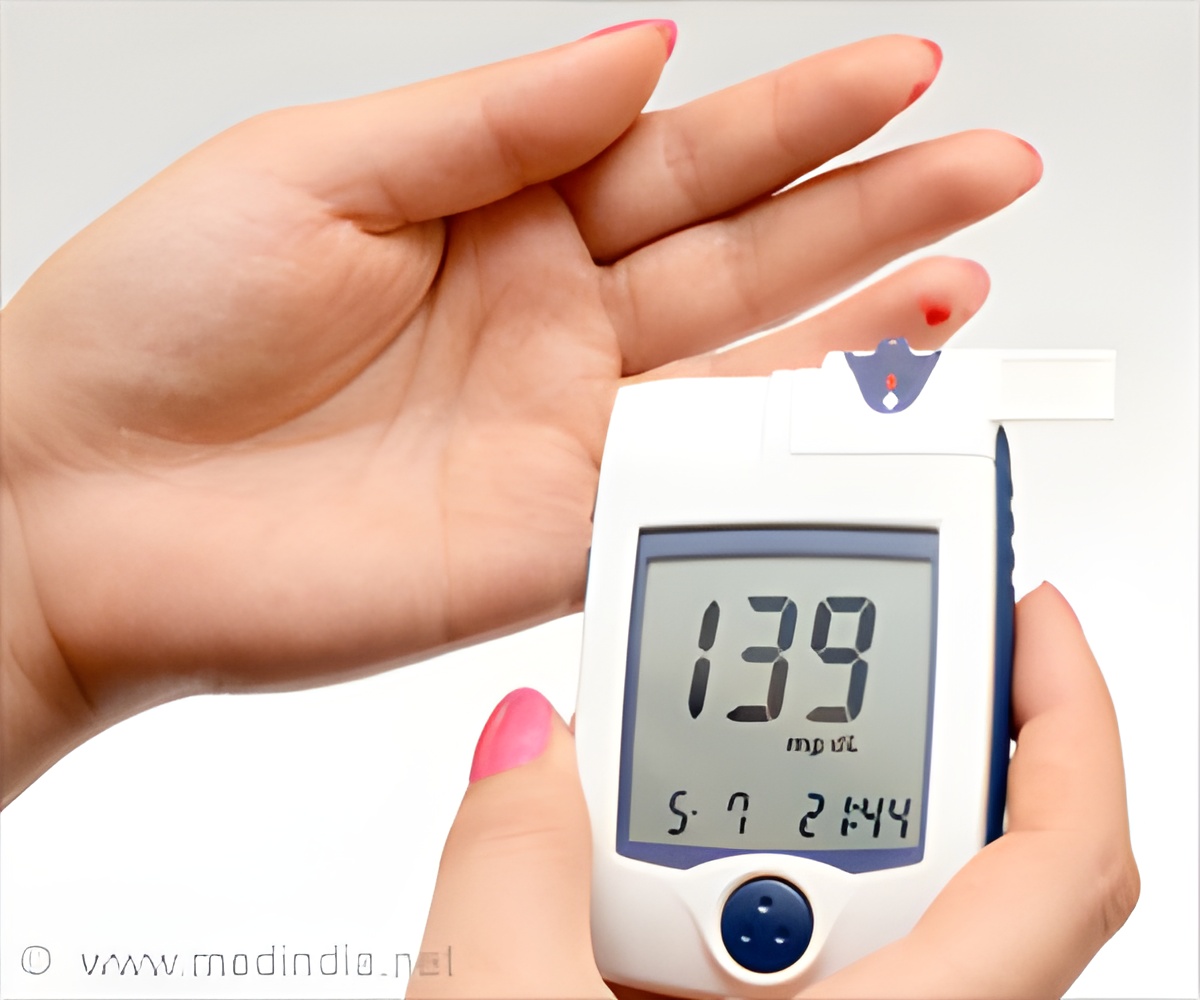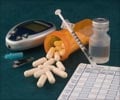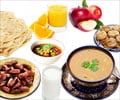Manage your diabetes while fasting during Ramadan. Understand the importance of blood sugar monitoring and get important safety tips.

What is Diabetes?
Diabetes is a medical condition where your blood glucose levels become higher than the normal range. Diabetes can occur if the pancreas does not produce sufficient insulin or the insulin produced is not working properly. Insulin is required to transport the glucose present in the blood in to the cells. Cells utilize glucose to produce energy which is necessary for normal survival. Since the glucose is not properly transported inside the cells in diabetic patients, blood glucose levels continues to increase, which in turn can lead to severe health complications.What are Different Types of Diabetes?
There are two types of diabetes - type 1 and type 2. No insulin is produced by the body in type 1 diabetes and the patient needs to take insulin injections. This type of diabetes is usually detected in children or in young people. While there is no specific causative factor for developing type 1 diabetes, being overweight surely increases the risk. Approximately 10% of diabetics have the type 1 form. In type 2 diabetes, insulin is either produced in lower amount or it is not properly utilized by the body. Family history, ethnicity and older age are the main risk factors for type 2 diabetes. Ninety percent of diabetics are affected by this form. Patients need to take oral blood sugar lowering agents with or without insulin.What Type of Diabetes Patients can Fast?
The risk level for developing complications with fasting can be different as per the disease control or severity in different patients. High-risk patients should avoid fasting, while the moderate risk patients must consult their general practitioners before initiating the fast. Low risk patients can fast by taking proper precautions. Conditions affecting risk levels are discussed below.A. High risk patient are:
- Type 1 diabetics
- Individuals who require to take insulin two or more times a day
- Individuals with poor diabetes control
- People hospitalized within the last 6 months for high or low blood sugar
- Patients with kidney, liver and heart problems
- Patients with poor vision and cognitive ability
- Pregnant or breastfeeding patients
- Patient with concurrent infective disease
B. Moderate risk patients are:
- Patients with moderate control of diabetes
- Patients who did not require emergency medical attention for low or high blood sugar in last 6 months
- Patients who are taking oral blood sugar lowering drugs like gliclazide
C. Low risk patients are:
- Patients whose diabetes is well-controlled with diet only.
- Patients whose diabetes is well-controlled with drugs like metformin, phenformin, Sitagliptin, and pioglitazone
- Patients who do not have any concurrent heart or kidney problem
How Fasting Affects my Body?
Fasting during Ramadan can make you either hypoglycemia or hyperglycemia. Avoiding food and fluids for long hours between suhoor and iftar can drastically reduce your blood sugar levels and make you hypoglycemic. On the other hand, consuming too many sweets and fatty foods at iftar can increase your blood sugar levels and make you hyperglycaemic. Patients who take oral blood sugar lowering drugs are at higher risk for hypoglycemia during fasting. Untreated hypoglycemia or hyperglycemia can cause derogatory health consequences.What is Hypoglycemia and how can I manage it?
A condition where the blood glucose level falls below 70mg/dl is known as hypoglycemia. A hypoglycemic person can present symptoms like fatigue, feeling hungry, dizziness, trembling, disorientation, rapid pulse, confusion, blurred vision, and even unconsciousness.- A medium size glass of fruit juice
- 90-100 ml of any energy drink
- Glucose tablet as prescribed by the doctor
- 4-5 jelly chocolates
A small snack like a toast, one idly, a bowl of cereal, or a small plate of upma/poha must be eaten after hypoglycemia is adequately treated.
How High Blood Sugar can affect me?
Lack of activity and eating plenty of sugary food are the main reasons for developing hyperglycemia at this festive season. Prolonged hyperglycemia can lead to life threatening conditions by causing permanent damage to blood vessels, kidneys, nerves and eyes. Further, the patient can become unconscious and then comatose. The patient must be able to recognise the initial symptoms of hyperglycemia, which are extensive thirst, need to urinate frequently, and extreme weakness. Blood glucose monitoring must be done with the knowledge that blood glucose levels above 16 mmol/l suggest hyperglycemia.The fast should be discontinued if hyperglycemia occurs and the patient must be immediately referred to a doctor for treatment.
A diabetic patient keeping the Ramadan fast must consider these points to avoid hyperglycemia:
- Take medications and insulin injections as prescribed by the doctors on right time and at the right dosage
- Avoid having sugary food at iftar or suhoor
- Try to drink plenty of fluids after iftar
Do I Need to Wake up early for suhoor and what should I eat?
Yes, it is very important to eat and drink something early in the morning rather than to have your meal late in the night. Not eating or drinking for long hours can lead to hypoglycemia and dehydration. Having a meal early in the morning at suhoor will help maintain your blood glucose levels stable and keep you hydrated.Starchy carbohydrates along with vegetables, pulses, and lentils must be eaten at the suhoor. Carbohydrates release energy slowly and therefore help you to maintain blood glucose levels throughout the fast. One must select carbohydrates like basmati rice, wheat chapatti, bread, items made with semolina, and oat-based cereals.
However, it is very important to eat sensibly and drink lots of sugar-free fluid, especially water.
What should I eat at iftar?
Eating sensibly and correctly is very important for a diabetic patient. Too much fried food, sweets, and calorie rich food not only make you gain weight, but it can also affect your blood glucose levels. Drinking lots of sugar-free fluid is very crucial. Furthermore, Ramadan is all about self-control and self-restraint.Can I pray at taraweeh?
Praying at taraweeh can be very strenuous and can cause hypoglycaemia and dehydration. If you want to pray at taraweeh consider these points:- Accompany a family member who can understand the symptoms of hypoglycemia and can treat them
- Eat starchy carbohydrate food at iftar
- Drink plenty of water before taraweeh
- Always carry a water bottle and some jelly chocolates or glucose tablets with you
Some important tips:
- Never stop your insulin or medications during the fast
- Never hesitate to break the fast if feeling unwell. You can instead help others by feeding poor during Ramadan
- Drink plenty of water between the iftar and suhoor
- Limit your intake of dates to one or two at iftar as dates contains lots of sugar
- Prefer lean meat and chicken to reduce the amount of saturated fat in your diet
- Avoid ghee and butter and limit your oil intake
- Select healthy cooking methods like steaming, baking, roasting, and grilling rather than deep frying
- Avoid food high in oil content like parantha, pakoda, samosa, chivra and so on
- Avoid food high in salt content like pickles, chutneys and salted snacks
- Avoid food high in sugar content like jalebi, kheer, cakes, chocolates and so on
 MEDINDIA
MEDINDIA




 Email
Email










